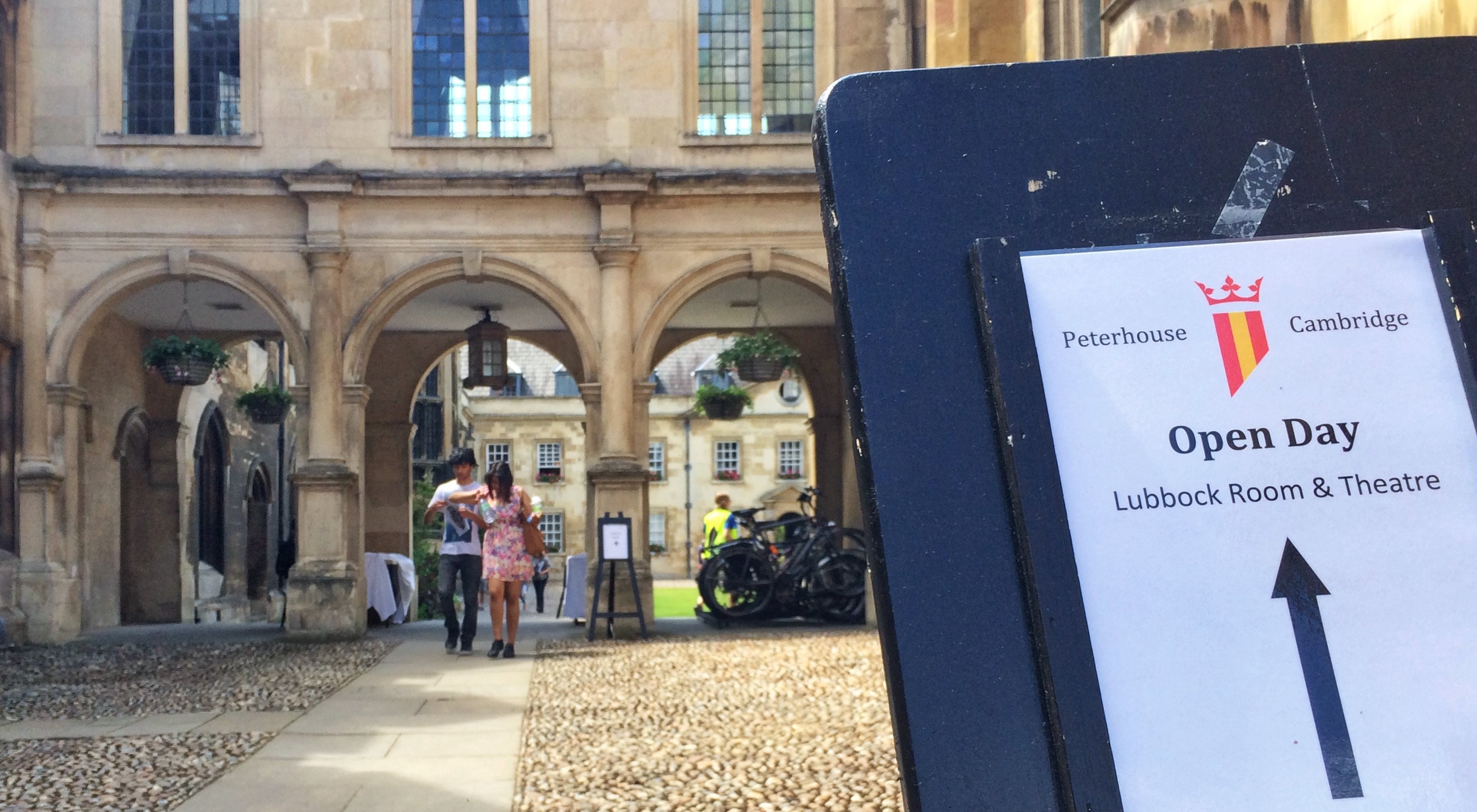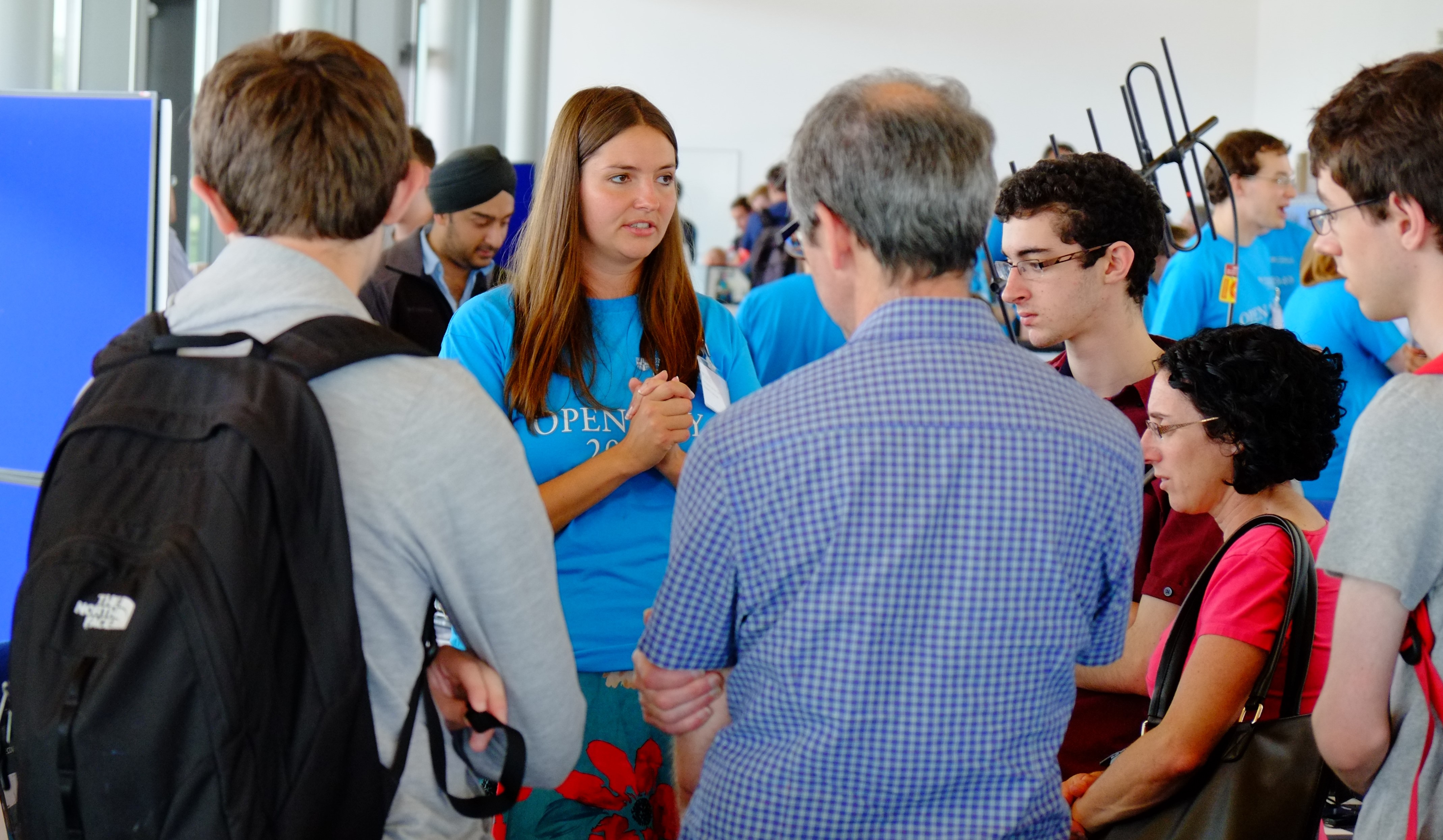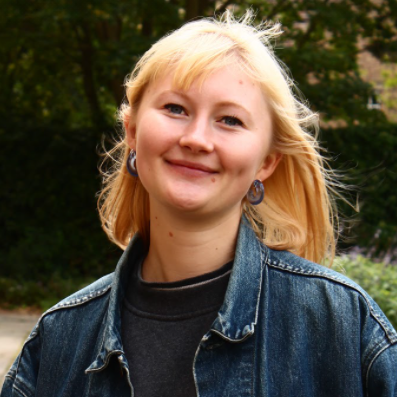Access & Participation Plan 2019-20
Student Submission on the 2019-20 Access & Participation Plan
Submitting student feedback to the Office for Students
Access and Participation Plans (APP) set out how higher education providers will improve equality of opportunity for underrepresented groups to access and succeed in higher education. The Office for Students (OfS) monitors these plans to make sure that universities are meeting their targets and delivering on their commitments. This year, students were invited to contribute to the monitoring process by submitting feedback on universities' progress in carrying out their 2019-20 APP.
As sabbatical officers with a shared remit covering Widening Participation and Equality, Diversity and Inclusivity, we have spent the past year working closely with students to support them on outreach-related matters and represent their voice in University-level discussions regarding access. We believe that outreach is best when it's student-led, student-driven, and reflects the full diversity of students' backgrounds and experiences. This can be difficult for universities like Cambridge where the collegiate structure is reflected in the complexity of its outreach landscape, consisting of many moving parts across Colleges, departments and faculties. We've been amazed at the sheer scale of coordination and collaboration which has taken place to facilitate Cambridge's widening participation activities under lockdown.

We saw the OfS call for student submissions as an opportunity to bring together all the access-related conversations we've had throughout the year, to spotlight examples of good practice and highlight gaps in Cambridge's outreach activities. First, we canvassed students and gathered their opinions and experiences through a survey circulated among our networks of student outreach volunteers. We then ran a structured conversation with representatives from the Cambridge Admissions Office and the Cambridge Centre for Teaching and Learning, where we discussed their views on the status of access and outreach at Cambridge. Next, we summarised these discussions and shared our feedback in a written response to the OfS's questions.
This article presents some of the main ideas generated by this process.
Our reflections on the University's activities and how they work with students
Cambridge comprises many parts, each delivering their own outreach activities. The University's Strategic Review of Admissions and Outreach is currently evaluating the ways these activities intersect, although we have also formed views of our own from working as sabbatical officers this year. In our consultation with the University for this student submission, we found that we shared a lot of ideas about areas for improvement.
For example, we agree that there has generally been a heavy reliance on Cambridge Students' Union sabbatical officers to provide strategic feedback. While students are often recruited as outreach ambassadors for the University, there is extremely limited capacity for these students to shape the development and delivery of the University's access and outreach activities. We discussed the need for structures to be put in place which would allow students to meaningfully contribute to these processes, and explored the possibility of establishing an advisory group representing a broad cross-section of the student body.

Such structures would also streamline and strengthen support for student-led outreach work taking place on the ground. The relative lack of top-down coordination means that a lot of the student-run outreach happening at Cambridge has grown organically from student passion for outreach, and this is reflected in the amazing diversity and creativity of outreach being led by student societies and groups. The downside is that a lot of student-led outreach does not get noticed by the University and becomes difficult to sustain or scale up. Establishing clear channels of communication between the University and students would facilitate more concrete collaboration.
Through our ongoing engagement with student groups, we've also observed that the current structures in place to support student-led outreach are opaque, rigid and oftentimes not suited to students' needs. For example, applications to the Widening Participation Project Fund need to be made a full year in advance. Many students told us they did not know what support was available to them, while others said the quantity of paperwork required to access support sometimes did not match the small scale of support being requested. This reflects the need for better signposting and more flexibility when it comes to resource distribution. We recommend that easily accessible funding is made available for smaller-scale student-led access projects.
We've seen that where there is direct contact to facilitate targeted provision of support, student-led outreach can make a huge difference. An example of this is the close collaboration between the African Caribbean Society and the University through the Black Access Working Group. In our consultation, we discussed how this could be used as a model and extended to other underrepresented and under-supported student groups. Most notably, students from Bangladeshi, Pakistani and Arab backgrounds are mentioned in the 2019-20 APP alongside Black students as ethnic groups whose underrepresentation can be attributed to admissions gaps and would thus benefit from targeted outreach.
Overall, it was very encouraging to hear from the University that they share our view that there should be more opportunities for students to shape its outreach activities. We look forward to working with stakeholders to facilitate a shared direction which is grounded in collaboration and cooperation.
Coronavirus
As part of our consultation for the submission, we were asked to consider the impact of the pandemic on students and reflect on the University's response. As we've seen on a national level, the pandemic has exacerbated existing disparities and hit marginalised groups the hardest. For example, care-experienced and estranged students have faced greater housing precarity, while students from low-income backgrounds have had limited access to study spaces and facilities.

It is clear that the University has made considerable efforts to respond to student concerns during the pandemic, in spite of the sheer scale of the disruption. Students' fears and anxieties have been acknowledged, reflected in the measures taken, from dedicated hardship funding for students without access to computing facilities, to guaranteed accommodation for students for whom Cambridge is their primary place of residence or who could not travel back home due to border closures. Massive efforts were also made to move student support services - such as the Disability Resource Centre and University Counselling Service - as well as teaching and learning activities online.
As such, our experiences during the pandemic further emphasised how the 'student experience' is a key component of access. Where previously issues of 'access' might have been thought to end once students got into Cambrige, the scale and scope of the disruption to students from Widening Participation backgrounds confirmed that access work needs to continue beyond admission. This culture shift is reflected in the 2020-25 APP's expanded focus on access from a post-admissions perspective, although tackling the key issues will be an ongoing process.
Feedback from student representatives on various advisory groups and committees has been crucial in shaping the University's priorities, particularly during this turbulent time. Looking forward, we believe that there needs to be more scope for students to participate in and guide the University's decision-making processes, in order to boost transparency and facilitate collaboration, as well as more coordination across Colleges to facilitate a joined-up response to redress disparities and inequalities.
Authors
Howard Chae

Howard was the 2020-21 Black and Minority Ethnic Officer for the Cambridge Students' Union. He studied his BA and MPhil in History at Magdalene College, graduating July 2020.
Esme Cavendish

Esme was the 2020-21 Undergraduate Access, Education and Participation Officer for the Cambridge Students' Union. She studied her BA in English at Christ's College, graduating July 2020.
Cambridge Teaching & Learning Newsletter vol. 2 (issue 3) July 2021
